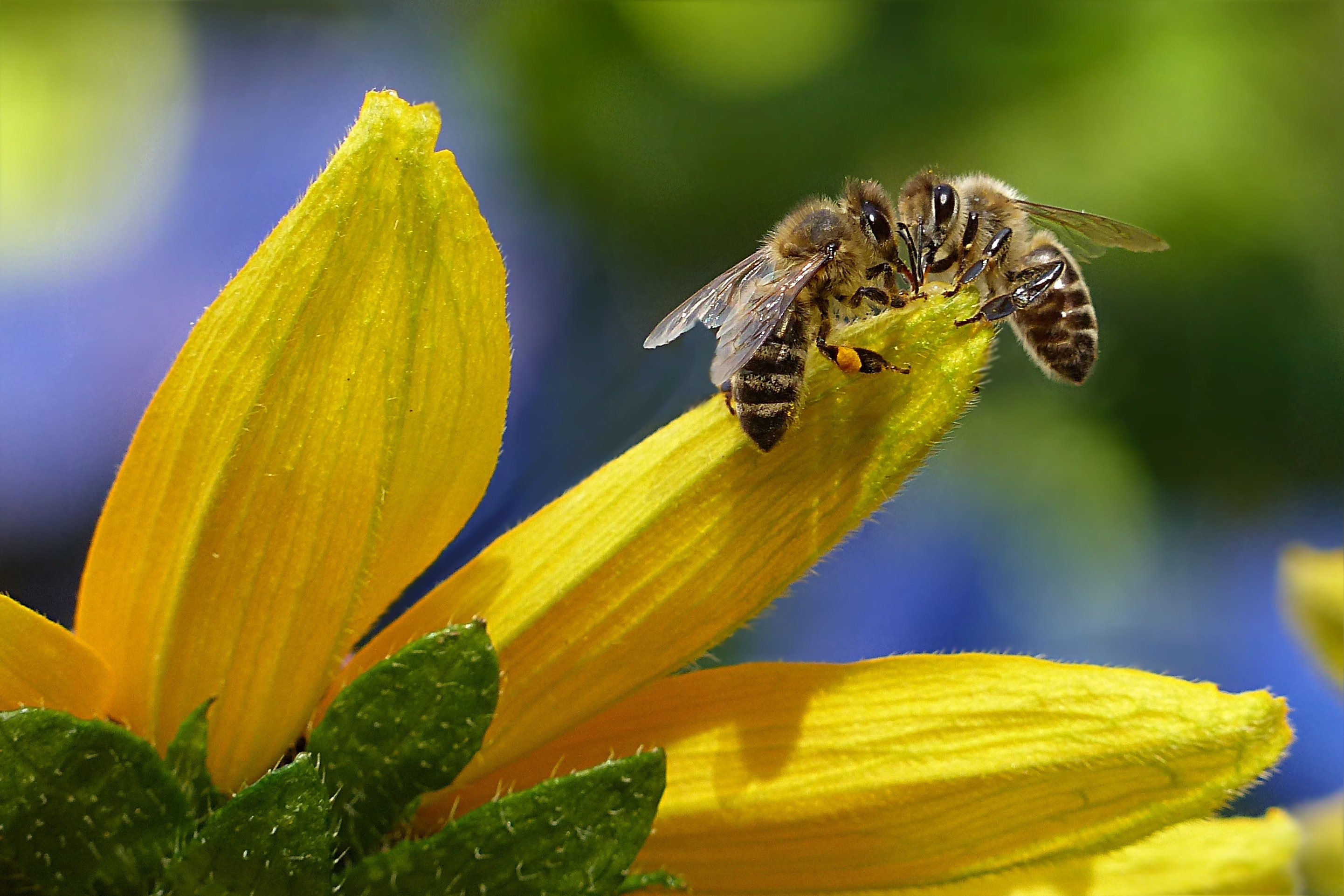By: Katy Defazio
You hear a buzz, and you see them fly, high and mighty in the sky. Pollination and restoration; are good for Earth with so much worth! Bees are crucially important to our precious planet, and we often forget this as we hear them buzz past our faces. How can we preserve these precious creatures for generations to come?
According to an article from MedicalNewsToday.com, there are over 4,000 species of bees native to the United States. In recent years, humans have come to recognize the importance of food security and ecosystem variety, thanks to bees. Unfortunately, a rise in pesticide use and urbanization has caused a decline in the number of bees, negatively affecting a number of Earth’s ecosystems. People have used bees and bee-related products for thousands of years, noting claims of antioxidant, antimicrobial, anti-inflammatory, and anticancer properties. Reflecting on traditional medicinal purposes, honey has been used to treat a wide variety of conditions for generations. Some of these conditions include bronchial asthma, hiccups, dizziness, eczema, and ulcers. Beeswax has also proven to be beneficial for skincare products and ointments.
We have pointed out the significance of honey from bees, but these creatures have properties that play an even more crucial role, that being pollination. Around 75 percent of crops produce better yields if animals help pollinate. Of all animals, bees are the most dominant pollinators of wild and crop plants. They visit over 90 percent of the world’s best crops. Overall, bees are essential for the growth of plants and food crops.
Individuals have been working with bees for many generations. For example, the Ancient Greeks thought of bees as a symbol of immortality. In the 19th century, beekeepers in New England would inform their bees of any major events in human society. Meanwhile, native northern Australians used beeswax when producing rock art. For historical experts, bees and their products are a key aspect of archaeology. This is because beeswax produces a “chemical fingerprint” that people can assess to identify components in organic residue.
How can we help bees? How can we preserve these precious creatures for generations to come? Increasing rural spaces in urban areas can boost human mental and emotional well-being. Watch and observe instead of getting frightened and running away! Individuals are encouraged to watch bees and record the types of flowers they visit. The welfare and number of bees worldwide are in decline, and it is essential to protect them to maintain the overall health of our planet and all the creatures inhabiting it as well.

